Take the First Step For Estimate!
- Accurancy
- Efficiency
- Transparency
- Customization
- Time Saving
- Professionalism
- Cost Control
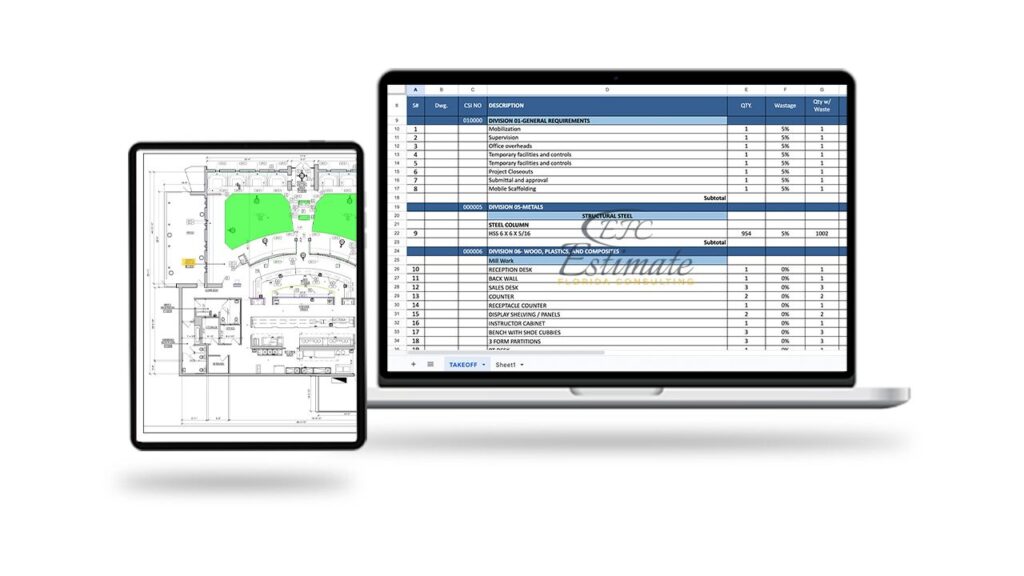
Estimate Florida Consulting offers comprehensive estimate services, specializing in concrete foundation cost estimation. Our meticulous calculations ensure accuracy and transparency in project budgeting. Our price estimates, ranging from $51,000 to $80,000. The cost per square foot for a concrete foundation in Florida typically ranges from $6 to $12, depending on various factors such as site conditions, accessibility, and complexity of the project and if you’re looking for the cost per linear foot for a concrete foundation (such as for a retaining wall or a footing), it can range from $10 to $30 per linear foot, again depending on factors like depth, width, and design requirements.
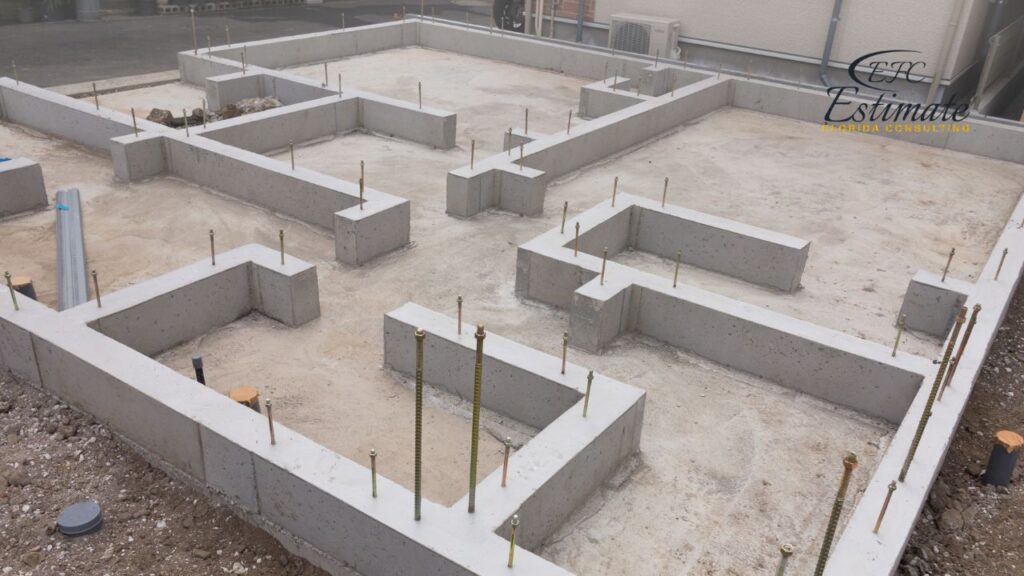
Encompass labor costs and site preparation, providing clients with a clear understanding of the financial scope involved. With our expertise, clients can confidently plan their projects, knowing they have reliable cost projections to guide them. Whether it’s a residential or commercial venture, our dedicated team ensures that every detail is accounted for, allowing for informed decision-making and successful project outcomes. Trust Estimate Florida Consulting for precise estimates that lay the groundwork for your construction endeavors.

Concrete foundation cost estimation is a meticulous process that involves various components to ensure accuracy and reliability in budgeting for construction projects. Understanding these key components is essential for effectively managing project finances and ensuring successful outcomes.
The primary component of concrete foundation cost estimation is material expenses. This includes the cost of concrete itself, reinforcement materials such as rebar or mesh, and any additives or admixtures required for specific project requirements. Material costs can vary based on factors such as quality, quantity, and market fluctuations.
Equipment expenses play a crucial role in concrete foundation construction and are an integral part of cost estimation. This includes the rental or purchase costs of heavy machinery and tools required for tasks such as excavation, concrete mixing, and placement.
Factoring in equipment costs ensures that projects are adequately equipped to meet construction needs efficiently.
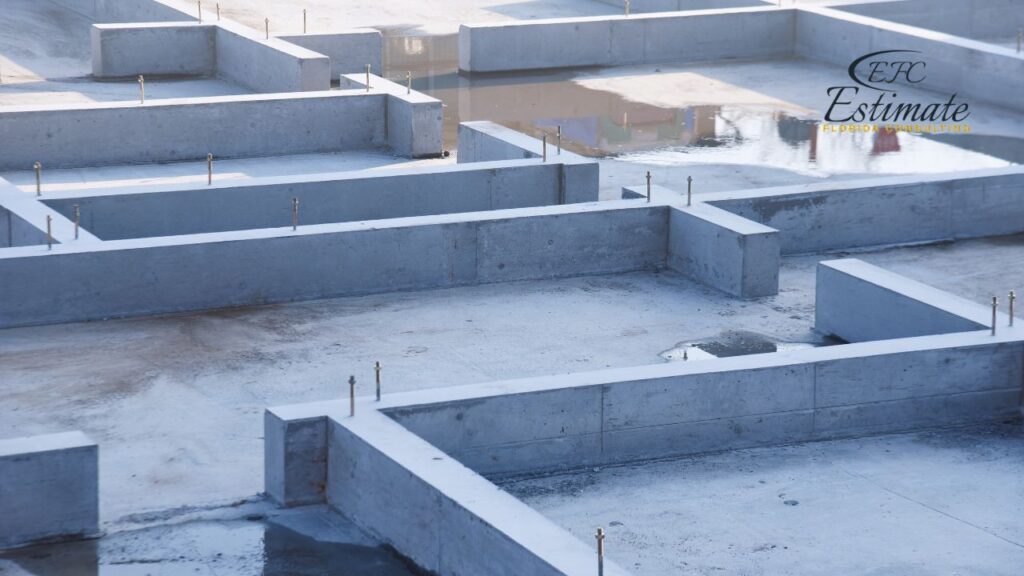
Another significant aspect of cost estimation is labor expenses. This encompasses the wages of skilled laborers involved in the construction process, including excavation, formwork installation, concrete pouring, and finishing. Labor costs are influenced by factors such as local wage rates, project complexity, and productivity levels.
Proper site preparation is essential for laying the groundwork for successful concrete foundation construction. Site preparation costs involve activities such as clearing vegetation, grading, soil compaction, and utility relocation. Assessing site-specific requirements accurately helps in estimating the time and resources needed for preparatory tasks.
Excavation and earthwork constitute significant cost components in concrete foundation projects, particularly for below-grade structures. Estimating excavation costs involves evaluating factors such as soil conditions, depth of excavation, and access constraints. Accurate assessment of earthwork requirements prevents surprises and delays during construction.
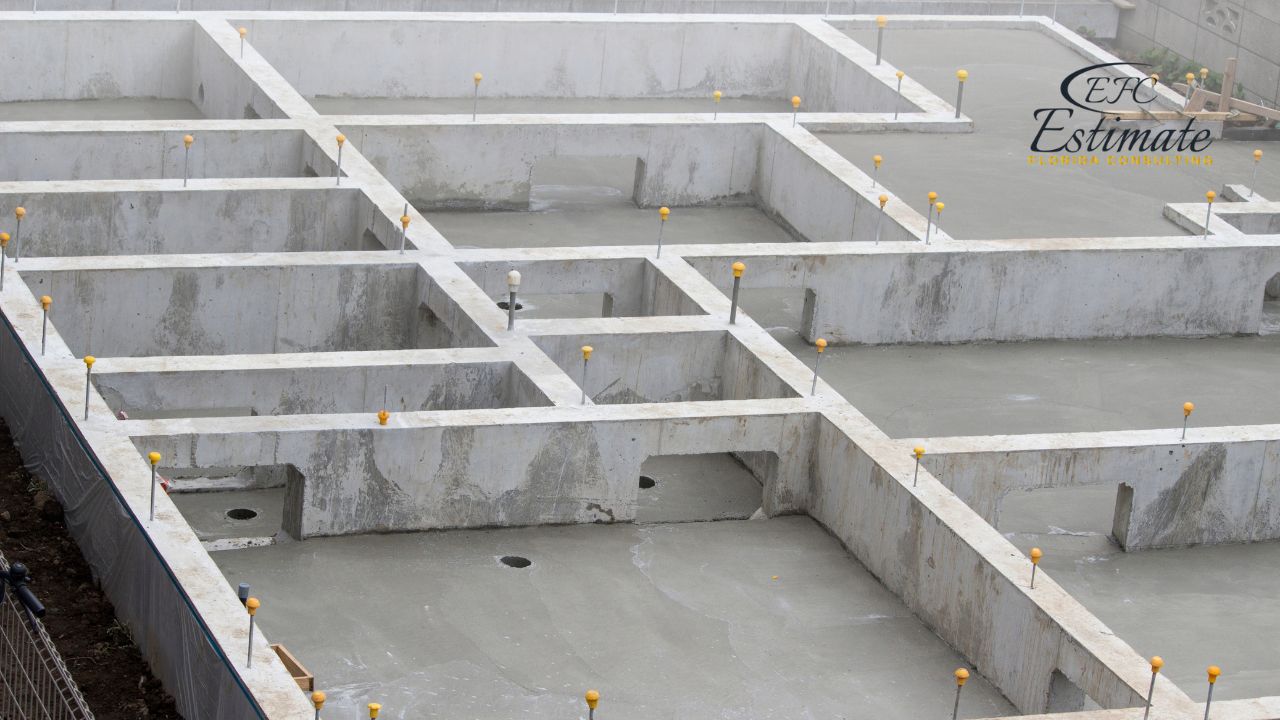
Fully Insured License
Sub Contractor for Concrete Foundation
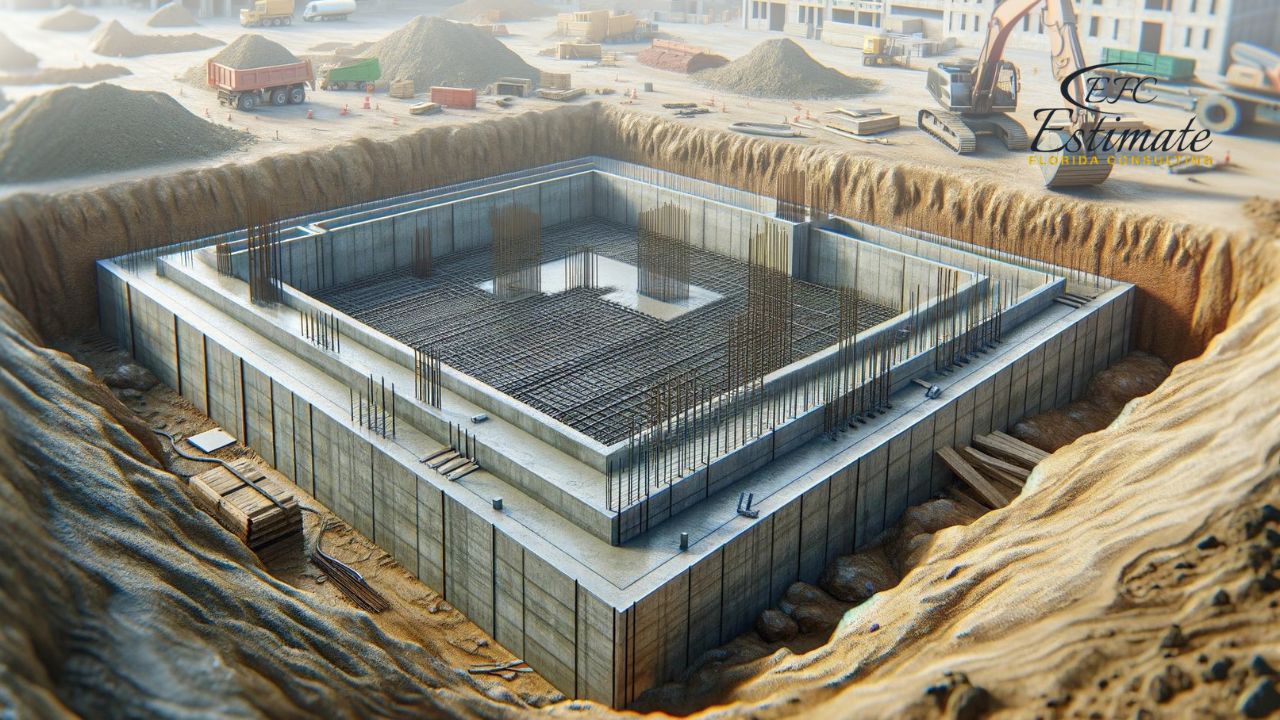
Make Informed Design Decisions Showcase Your Design Ideas
Get RenderingTransporting materials, equipment, and personnel to and from the construction site incurs logistical expenses that impact overall project costs. Factors such as distance, accessibility, and traffic conditions influence transportation costs and should be considered during estimation.
Effective project management and supervision are vital for ensuring quality, safety, and adherence to schedule in concrete foundation construction. Budgeting for project management and supervision costs covers activities such as planning, coordination, inspection, and compliance with regulatory requirements.
The single slab foundation is the most common and versatile type. It involves pouring a single, continuous slab of concrete to support the entire structure. This method proves suitable for different home sizes and construction projects. However, variations exist, such as T-shaped foundations used for larger structures or frost-protected shallow foundations suitable for colder climates. Exploring these variations and understanding their applications can help you choose the most suitable option for your specific project.
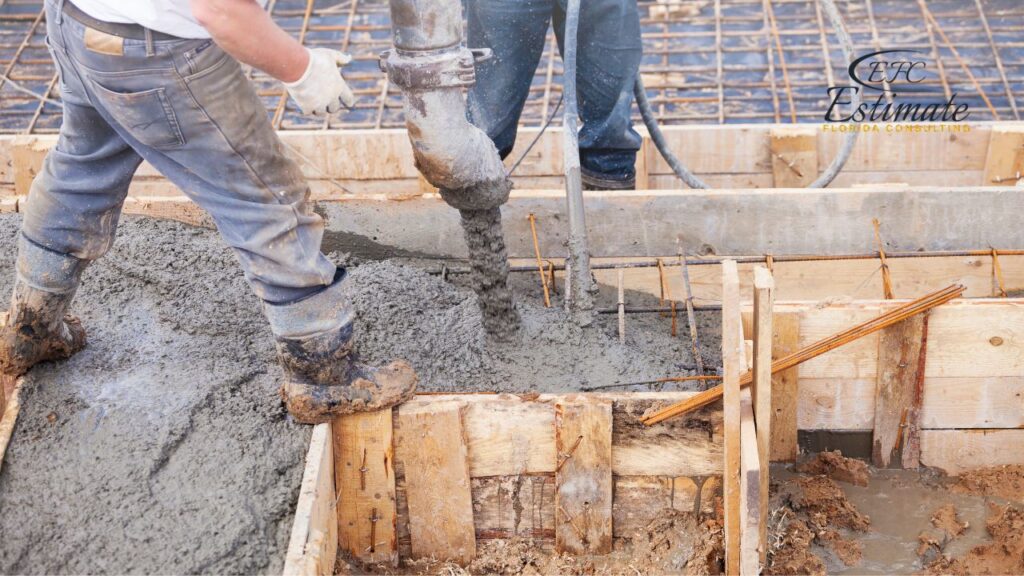
Concrete foundations stand out for their simplicity and cost-effectiveness. Unlike other foundation types, such as crawl spaces or basements, a single slab is poured for the entire structure. This not only reduces construction time but also minimizes the need for extensive excavation.
Comparing concrete foundations with alternatives provides valuable insights into their advantages. While basements may offer additional living space, they come with higher costs and complexities. Concrete foundations, with their straightforward approach, are a popular choice for those looking to balance functionality and cost.
A detailed cost breakdown is essential for transparency and accurate budgeting. Let’s examine costs for various square footages based on the provided table, which includes estimates for pouring labor and materials for a 6″ thick slab.
Square Feet | Pouring Labor | Materials (6″ Thick) | Average Total |
400 | $1,000 | $1,500 | $2,500 |
500 | $1,300 | $1,900 | $3,200 |
576 | $1,500 | $2,200 | $3,700 |
600 | $1,600 | $2,300 | $3,900 |
800 | $2,100 | $3,000 | $5,100 |
1,000 | $2,600 | $3,800 | $6,400 |
1,200 | $3,100 | $4,600 | $7,700 |
1,500 | $3,900 | $5,700 | $9,600 |
2,400 | $6,200 | $9,100 | $15,300 |
So, why wait? Send us your plans and give us a call now. Let’s make your project a success together!
Calculating your project’s estimate involves more than plugging numbers into a formula. It requires a nuanced understanding of your specific needs and the ability to adjust values based on the unique characteristics of your project.
Consider the variables that might impact your project, such as soil conditions, climate, and any additional features like decorative finishes. Online tools and resources can assist in this process, providing guidance on adjusting values to obtain a more tailored and accurate estimate.
The appeal of do-it-yourself (DIY) projects is undeniable, especially for those looking to cut costs. However, the decision to undertake a DIY concrete foundation project requires careful consideration.
Before diving into the world of concrete mixing and pouring, evaluate the feasibility and complexity of your project. Consider your own skill level, the availability of tools and equipment, and the potential challenges that may arise during the process.
While DIY projects can be rewarding, they also come with risks. In the context of a concrete foundation, mistakes in mixing or pouring can compromise the structural integrity, leading to costly repairs. DIY enthusiasts should proceed with caution, seeking guidance from experienced builders or contractors when needed.
While DIY projects are a tempting option for cost savings, there’s unparalleled value in seeking professional estimates. Professionals bring expertise and a comprehensive understanding of construction nuances to the table.
Professional estimates go beyond the numbers on paper; they consider the specific requirements of your project. Whether it’s a unique architectural design or site-specific challenges, professionals can provide accurate assessments that form the foundation of a successful construction project.
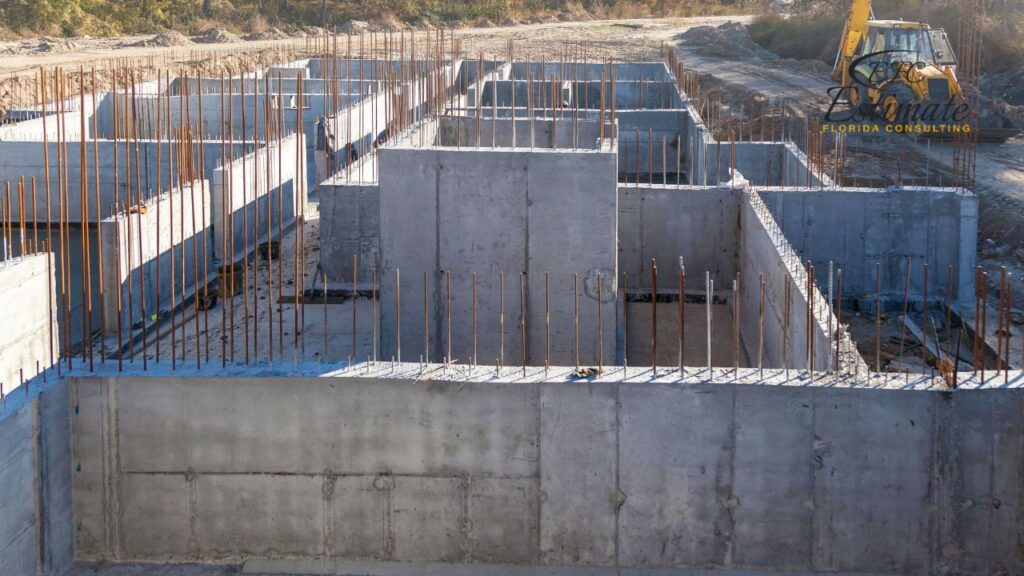
The longevity and stability of your concrete foundation depend on the quality of materials used and the expertise of the contractors involved. Cutting corners on materials or hiring inexperienced labor can result in structural issues that may manifest over time.
Investing in quality materials, such as high-grade concrete and appropriate reinforcements, is a long-term strategy. While it may increase initial costs, it significantly reduces the likelihood of future repairs and ensures the foundation’s durability.
Similarly, hiring experienced contractors is non-negotiable. Look for professionals with a proven track record in concrete construction. Checking references, certifications, and previous projects can provide insights into the contractor’s expertise and reliability.
Concrete foundation budgeting is a critical aspect of construction project planning, and avoiding common mistakes is essential to ensure project success. Here are some pitfalls to steer clear of when using a Concrete Foundation Cost Estimator:
One common mistake is underestimating the costs associated with concrete and reinforcement materials. Failing to account for fluctuations in material prices or overlooking the quality requirements can lead to budget overruns and delays.
Labor expenses constitute a significant portion of concrete foundation construction budgets. Neglecting to accurately estimate labor costs, including wages, overtime, and benefits, can result in under budgeting and resource shortages during project execution.
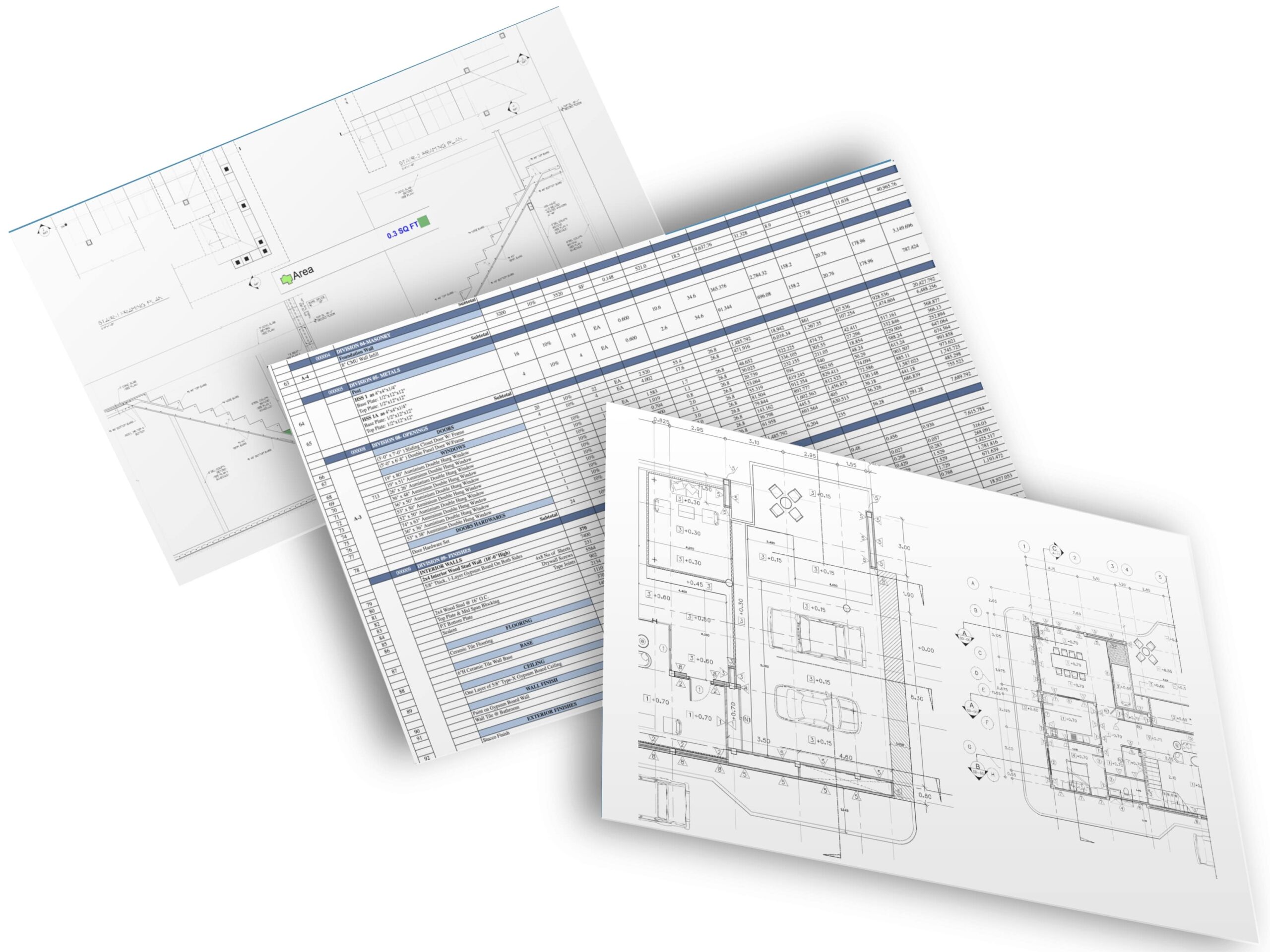
Every construction site has unique characteristics that can impact foundation construction costs. Ignoring site-specific factors such as soil conditions, accessibility, and environmental considerations can lead to unforeseen expenses and project delays.
Every construction site has unique characteristics that can impact foundation construction costs. Ignoring site-specific factors such as soil conditions, accessibility, and environmental considerations can lead to unforeseen expenses and project delays.
Estimating the cost of a concrete foundation is not just about numbers; it’s a strategic process that influences the success of your construction project. By understanding the factors affecting costs, breaking down expenses, and learning from real-world examples, you empower yourself to make informed decisions aligned with your budget and project goals.
As you embark on your concrete foundation project, consider the unique needs and challenges it presents. Whether you opt for a traditional single slab or explore alternative foundation types, prioritize quality, and seek professional guidance when needed.
Remember, a well-planned foundation sets the stage for a sturdy and enduring structure. Take the time to calculate your estimate thoughtfully, factoring in all relevant variables. In doing so, you not only ensure the financial success of your project but also contribute to the overall resilience and longevity of the built environment.
A Concrete Foundation Cost Estimator is a tool or service used to calculate the anticipated expenses associated with constructing a concrete foundation for a building or structure. It considers various factors such as material costs, labor costs, site preparation, and other project-specific details to provide an estimate of the total project cost.
The accuracy of estimates generated by Concrete Foundation Cost Estimators can vary depending on the quality of data input and the complexity of the project. While these estimators can provide a useful baseline, it’s essential to recognize that they are estimates and not precise figures. Actual costs may differ based on factors such as market fluctuations, unforeseen challenges, and changes in project scope.
Concrete Foundation Cost Estimators typically consider various factors, including material costs (concrete, reinforcement, etc.), labor costs, equipment expenses, site preparation requirements, excavation and earthwork, formwork, transportation, overhead, and profit margin. These factors are analyzed to develop a comprehensive estimate of the project’s total cost.
To enhance the accuracy of concrete foundation cost estimates, it’s essential to gather detailed information about the project, including site-specific conditions, project scope, material specifications, and labor requirements. Working with experienced professionals and utilizing up-to-date data and industry standards can also contribute to more accurate estimates.
While Concrete Foundation Cost Estimators provide initial estimates based on the information provided, they may not account for changes in project scope or requirements. It’s essential to regularly review and update cost estimates throughout the project lifecycle to reflect any modifications or additions accurately. Working closely with project stakeholders and incorporating contingency planning can help address unexpected changes effectively.
Here I am going to share some steps to get your concrete foundation cost estimate report.
You can send us your plan on info@estimatorflorida.com
Before starting your project, we send you a quote for your service. That quote will have detailed information about your project. Here you will get information about the size, difficulty, complexity and bid date when determining pricing.
Our team will takeoff and estimate your project. When we deliver you’ll receive a PDF and an Excel file of your estimate. We can also offer construction lead generation services for the jobs you’d like to pursue further.



561-530-2845
info@estimatorflorida.com
Address
5245 Wiles Rd Apt 3-102 St. Pete Beach, FL 33073 United States
561-530-2845
info@estimatorflorida.com
Address
5245 Wiles Rd Apt 3-102 St. Pete Beach, FL 33073 United States
All copyright © Reserved | Designed By V Marketing Media | Disclaimer